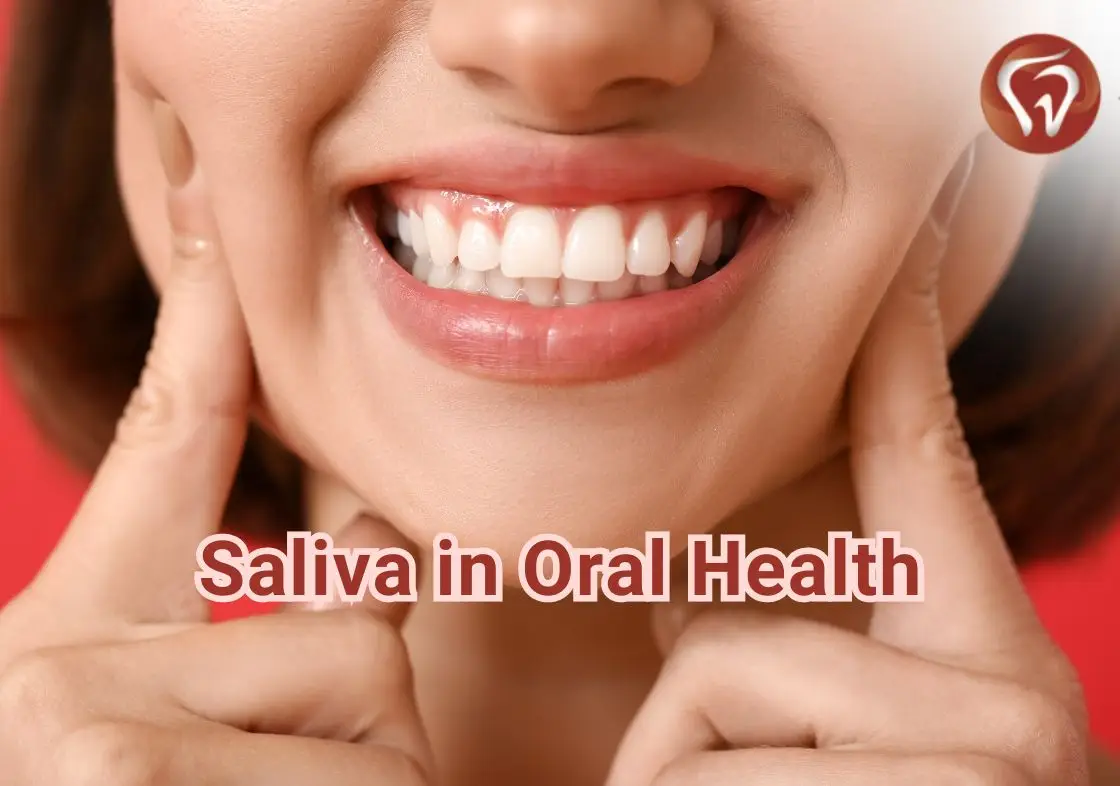Saliva might seem like a simple fluid, but it’s incredibly important for keeping your mouth healthy. By learning more about its functions and how it affects your oral health, you can better appreciate and take care of this amazing natural resource.
Saliva is much more than just spit; it’s a vital part of your oral health. This seemingly humble fluid has a big impact on how you eat, talk, and even how well your teeth stay healthy. Let’s get into what saliva does and why it’s so important for your overall oral health.
Composition of Saliva
Saliva is made up of several key ingredients:
- Water: It’s the main component, keeping your mouth moist and helping with everything from speaking to swallowing.
- Enzymes: These are proteins that start breaking down food. Amylase, for instance, helps to convert starches into sugars right in your mouth.
- Mucus: This helps lubricate your mouth, making it easier to chew and swallow.
- Antibacterial Compounds: They work to keep harmful bacteria in check, reducing the risk of infections and bad breath.
- Electrolytes: These minerals, including sodium and potassium, help balance fluids and maintain a healthy pH level in your mouth.
Understanding these components helps highlight why saliva is so essential for your oral health.
Functions of Saliva in Oral Health
Saliva does several important jobs that help keep your mouth in top shape:
- Lubrication and Protection
- Lubrication: Saliva keeps your mouth moist, which is crucial for speaking, chewing, and swallowing. It also forms a protective layer over your oral tissues, helping to prevent irritation and discomfort.
- Protection: This fluid acts as a barrier against potential irritants and pathogens, safeguarding your mouth from harm.
- Digestion
- Initial Digestion: As you chew, saliva starts the process of breaking down food. The enzyme amylase begins to turn starches into sugars, making it easier for your digestive system to handle the food.
- Maintenance of Tooth Integrity
- Remineralization: Saliva is rich in calcium and phosphate, which help to repair and strengthen your tooth enamel. This process, called remineralization, is crucial for protecting your teeth from decay and erosion.
- Antimicrobial Actions
- Fighting Bacteria: Saliva has natural antibacterial properties that help keep harmful bacteria under control. This helps reduce the risk of infections and keeps bad breath at bay.
- Buffering Capacity and pH Balance
- Neutralizing Acids: Saliva helps to balance the pH level in your mouth by neutralizing acids produced by bacteria. This helps protect your teeth from acid erosion and maintains a healthy oral environment.
Saliva Production and Flow
Saliva is produced by several glands in your mouth:
- Parotid Glands: Located near your cheeks, these are the largest salivary glands.
- Submandibular Glands: Found under the jaw, these produce a mix of mucus and enzymes.
- Sublingual Glands: Located beneath the tongue, these produce mostly mucus.
The amount of saliva you produce can be influenced by various factors:
- Hydration: Drinking plenty of water is essential for maintaining proper saliva levels.
- Diet: Eating crunchy fruits and vegetables can stimulate saliva production.
- Health Conditions: Certain medical conditions and medications can affect saliva production.
- Stress: High levels of stress can reduce saliva flow, impacting your oral health.
Common Issues Related to Saliva
Understanding common saliva-related issues can help you manage them better:
- Dry Mouth (Xerostomia)
- Causes: Dry mouth can result from medications, dehydration, or health conditions.
- Effects: This can lead to tooth decay, gum disease, and difficulty speaking or swallowing.
- Overproduction of Saliva
- Causes: Conditions like gastroesophageal reflux disease (GERD) can cause excessive saliva production.
- Effects: While generally less serious than dry mouth, excessive saliva can be uncomfortable and impact your daily life.
Maintaining Healthy Saliva Production
Here are some tips to help you maintain healthy saliva production and keep your mouth feeling great:
- Stay Hydrated: Drink plenty of water throughout the day to keep your saliva levels up.
- Eat a Balanced Diet: Include crunchy fruits and vegetables that can help stimulate saliva flow.
- Chew Sugar-Free Gum: This can encourage saliva production, especially if you’re dealing with a dry mouth.
- Avoid Tobacco and Excessive Alcohol: These can dry out your mouth and reduce saliva production.
- Manage Stress: Finding ways to relax can help maintain a healthy flow of saliva.
Conclusion
Saliva is a vital fluid that plays multiple roles in keeping your mouth healthy. From aiding in digestion to protecting your teeth and maintaining oral hygiene, its importance cannot be overstated. By understanding and supporting healthy saliva production, you can ensure your mouth stays in good shape.
If you have any concerns about your oral health or saliva production, we’d love to help. Visit us at Signature Smilez Family Dental for personalized advice and care to keep your smile healthy and bright.
FAQs
1. Why is saliva important for digestion?
Saliva contains enzymes like amylase that start breaking down food as soon as you begin chewing. This helps your digestive system process food more efficiently.
2. What causes dry mouth, and how can I manage it?
Dry mouth can be caused by medications, not drinking enough water, or specific health conditions. To manage it, stay hydrated, chew sugar-free gum, and consider using saliva substitutes.
3. How does saliva protect my teeth?
Saliva helps protect your teeth by providing essential minerals for enamel remineralization, neutralizing acids, and controlling bacterial growth. This reduces the risk of tooth decay and gum disease.
4. Can stress affect my saliva production?
Yes, stress can decrease saliva production, leading to a dry mouth. Managing stress through relaxation techniques and lifestyle changes can help maintain healthy saliva flow.

